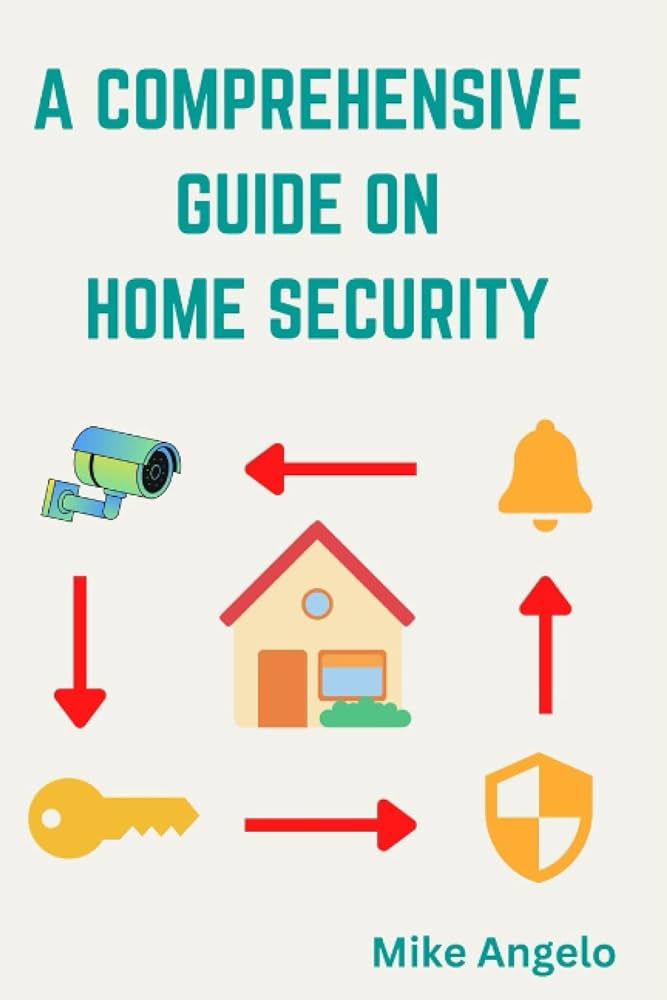There is nothing quite like the feeling of coming home after a long day, stepping over the threshold, and knowing you are safe and secure within the familiar confines of your own space. Your home should be your sanctuary, a place where you can relax, unwind, and create memories with your loved ones. But in today’s world, ensuring the security of your home and the safety of your family is of utmost importance.
My own journey towards securing my home began after a neighbor experienced a break-in. Hearing her recount the fear and violation she felt made me realize that I couldn’t take my own safety for granted. I wanted to be proactive, to take the necessary steps to protect what mattered most to me.
In my quest for comprehensive home security, I spent countless hours researching various methods, technologies, and professional services. It was an eye-opening experience, and I am thrilled to share the knowledge I have gained with you, my fellow homeowners, through this comprehensive guide to securing your home.
1. Strengthen Your Entry Points:
Your front door is the gateway to your home, and its security should be a top priority. Start by ensuring you have a solid core or metal door which can withstand forced entry attempts. Reinforce the door frame with a strike plate and longer screws, making it more resistant to kicks or brute force.
Consider upgrading your traditional lock to a deadbolt lock with a reinforced strike plate. In addition, you could install a smart lock, allowing you to control access remotely and monitor who enters your home. Many smart locks also offer features like keyless entry and temporary access codes for guests.
Don’t forget about the windows, as they are another common entry point for burglars. Install window locks or reinforce them with security film to prevent easy access. For added peace of mind, consider using window sensors as part of a comprehensive security system.
2. Invest in a Comprehensive Security System:
A security system is a reliable and effective way to protect your home. Consider choosing a system that includes motion sensors, door and window sensors, surveillance cameras, and a central control panel. This combination of features ensures that any potential intruders are detected, deterred, and recorded.
Modern security systems also offer the convenience of remote monitoring and control. Through smartphone apps or web interfaces, you can receive real-time alerts, view live camera feeds, and even control various aspects of your home’s security system from anywhere in the world.
3. Illuminate and Secure Your Exterior:
A well-lit exterior can be an effective deterrent for criminals. Install motion-sensor lights around the perimeter of your home, particularly near entry points. These lights will illuminate the area whenever someone approaches, making it harder for intruders to go unnoticed.
Consider adding additional security measures to your exterior, such as fencing, gates, or even security cameras. These visual deterrents can deter potential criminals, while also helping you capture any suspicious activity around your property.
4. Home Automation for Added Convenience and Security:
Home automation technology has come a long way in recent years, making it easier than ever to integrate security measures into your everyday life. Smart home devices, such as smart thermostats, lighting systems, and even voice-controlled virtual assistants, can enhance your comfort and convenience while also serving as an additional layer of security.
For example, setting up routines that control your lights and blinds to mimic your usual presence can create the illusion that someone is home even when you are away. This can greatly reduce the risk of a break-in. Additionally, integrating your security system with voice-controlled virtual assistants like Amazon Alexa or Google Assistant allows you to arm or disarm your system with just a few spoken words.
5. Be Mindful of Social Media:
In this era of social media sharing, it’s crucial to be mindful of the information we share about our personal lives. Avoid posting about your vacation plans or broadcasting the fact that you will be away from home for an extended period. This kind of information can be used by potential burglars to target vacant homes. Instead, save the sharing for after you return from your trip.
6. Get to Know Your Neighbors:
Building a strong and trustworthy relationship with your neighbors can be an invaluable asset when it comes to home security. Look out for one another, share contact information, and establish a neighborhood watch if possible. By working together as a community, you can keep an eye on each other’s homes and alert authorities if something seems suspicious.
7. Consider Professional Monitoring:
While DIY security systems can offer peace of mind, professional monitoring takes home security to the next level. With 24/7 monitoring, trained professionals keep a watchful eye on your home and can dispatch emergency assistance if needed. This ensures that help is on the way, even if you are unavailable or unable to respond to an alarm.
In conclusion, securing your home is an ongoing process that requires a combination of physical measures, advanced technology, and proactive habits. By implementing the steps outlined in this comprehensive guide, you can create a safe and secure environment for you and your loved ones. Remember, investing in your home’s security is an investment in your peace of mind.
